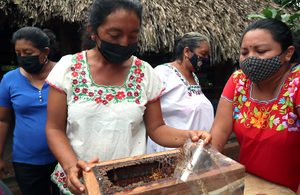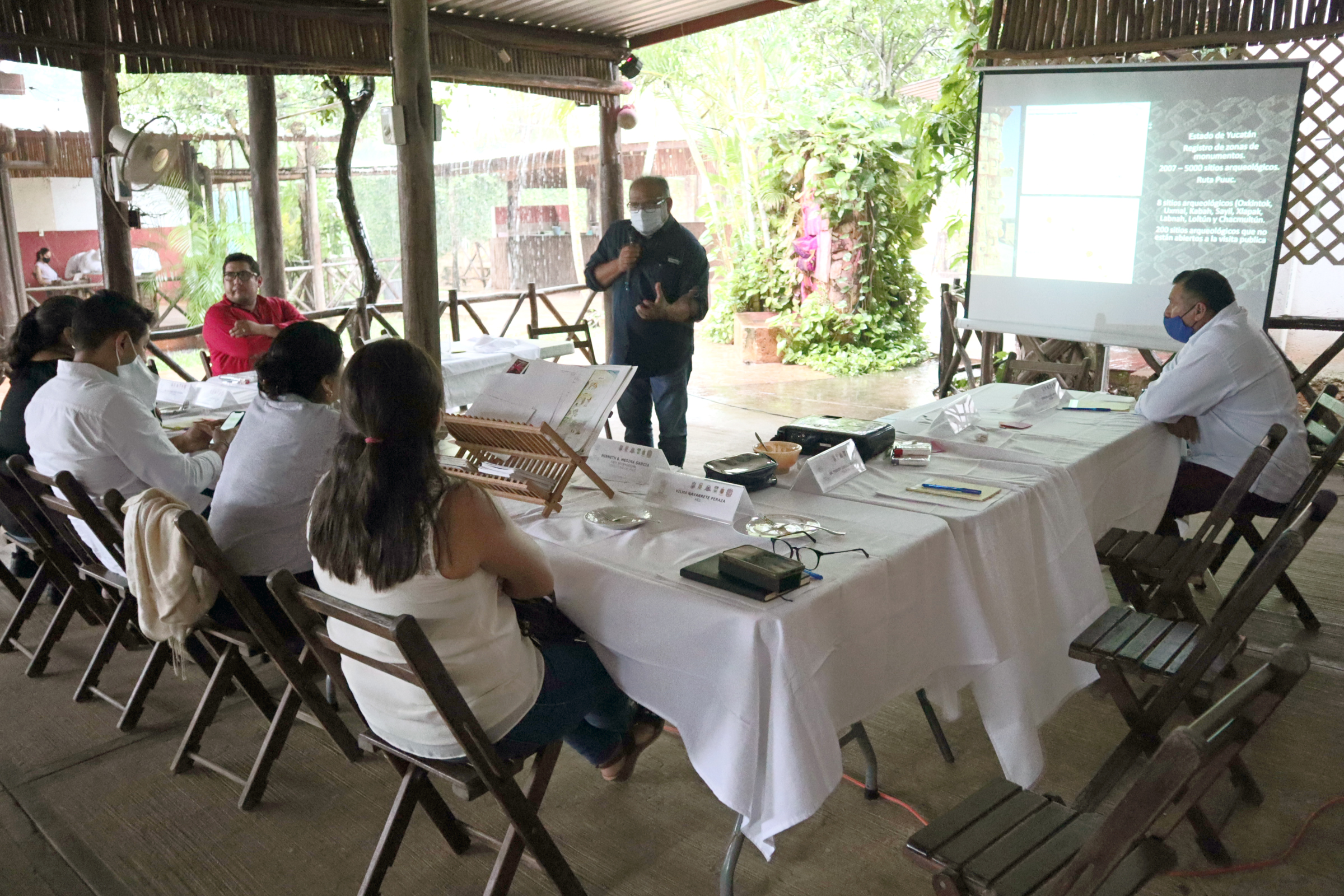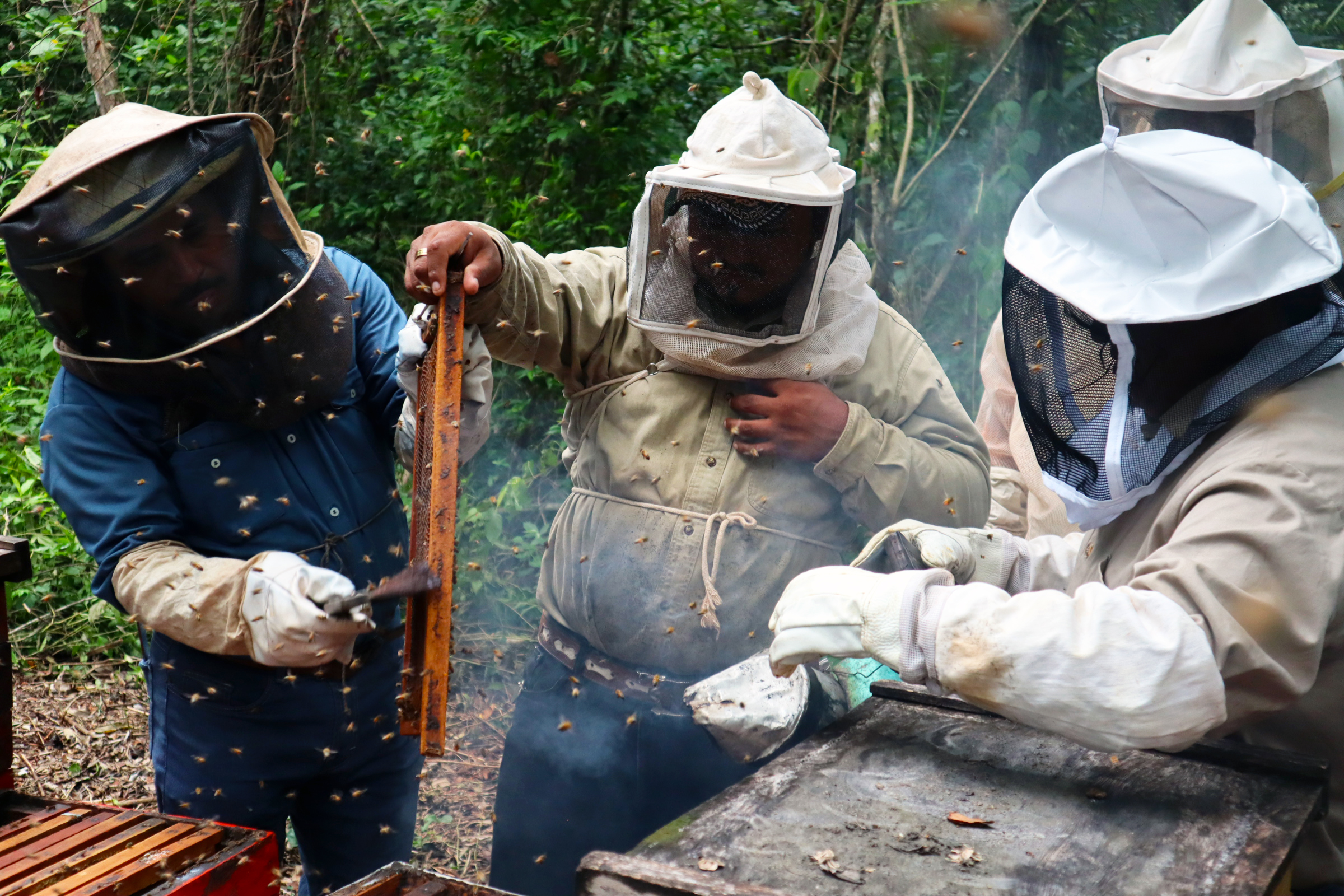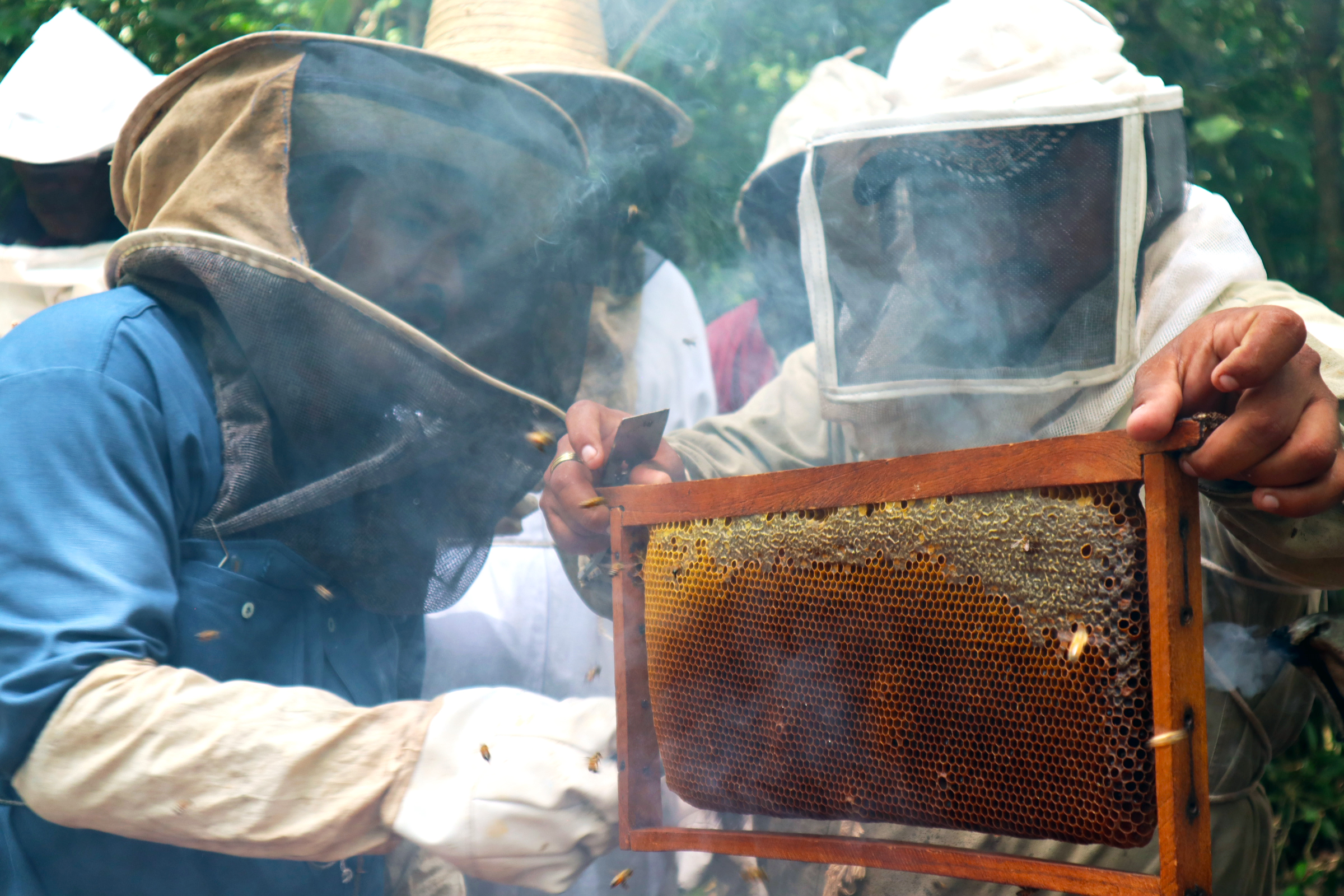UK partners with Mexican beekeepers to help mitigate climate change
The UK’s Partnering for Accelerated Climate Transitions (UK PACT) programme has been addressing the consequences of deforestation in the south of Mexico.

In southern Mexico, UKPACT helps beekeepers mitigate climate change.
The UK’s Partnering for Accelerated Climate Transitions (UK PACT) programme contributes to tackling climate change through the provision of UK expertise and knowhow. Since March 2021, the UK PACT Building Capacity for Beekeepers project in the states of Campeche, Yucatán and Quintana Roo has been addressing the consequences of deforestation, including a marked reduction in honey production. The initiative provides apiarists with training on how to increase honey harvests and preserve local biodiversity. Thus far, the project has supported over 600 beekeepers to increase their incomes and improve their livelihoods, especially for women producers.

In southern Mexico, UKPACT helps beekeepers mitigate climate change.
In the municipality of Escarcega in Campeche, the project is re-introducing previously deforested tree species that produce the nectar and pollen, which bees require to produce honey. This is a long-term strategy to transform positively the landscape around the beekeeping communities. In addition, it will increase their honey output and help densify the region’s flora. This will regenerate the natural ecosystems for the bees and help mitigate the effects of climate change. It will also strengthen the economy in the communities where apiculture remains one of the most important commercial activities.
In the state of Quintana Roo on the Caribbean coast, apiarists used to produce 300 kilos of honey with only ten beehives. Now, they require 50 beehives or more to produce that same volume, which translates to a substantial increase in capital and operating costs. This, in part, is due to the consequences of deforestation, such as warmer temperatures, an increase in pests and damage to flowers. These changes to the environment demand that beekeepers provide greater care of the bee colonies. UK PACT is training them how to do exactly that.
The apiarists in these communities have never received technical formation. The training therefore provides a mix of theoretical and practical components covering from basic concepts through to advanced techniques in beekeeping. This includes; the latest procedures on queen bee production; elimination of pests through eco-friendly solutions; and colony nutrition based on special nourishment during extreme weather conditions. Thanks to this tailor made capacity building, the apiarists have doubled their honey production.
María Eugenia H. an apiarist from the Ejido Social community in Campeche salid:
We especially enjoy getting opportunities to practice what we learn. This is very helpful. It is not the same as just listening and writing. By doing, we learn a lot more”.

In southern Mexico, UKPACT helps beekeepers mitigate climate change.
The apiarists are also developing complementary skills such as woodworking to build their own beehives. The training has developed into a community building exercise that more clearly recognises and remunerates women for their productive roles in apiculture.
Key to the project’s success was collaboration with government counterparts that facilitated access and support to the communities. Efrain Villanueva Arcos, former Minister of the Environment of the state of Quintana Roo shared:
This activity represents an opportunity for the honey producers to export and add value to their products. Above all, we want to convey the message that we have to take care of our rainforests because they promote the wellbeing of local families. This project that UK PACT has started is very important for us in the state of Quintana Roo.
Sayda Rodríguez Gomez, Secretary of Sustainable Development of the State of Yucatán stated:
UK PACT has provided support to understand that apiculture is a multidimensional production process. We are convinced that the next step is to develop a more sustainable value chain that benefit both people and the environment.
Going forward, this project will continue to strengthen the business and technical skills of the beekeeping communities. This partnership between the UK and Mexico will also help mitigate climate change and promote sustainable economic development in southern Mexico.

In southern Mexico, UKPACT helps beekeepers mitigate climate change.